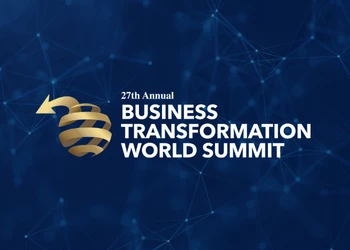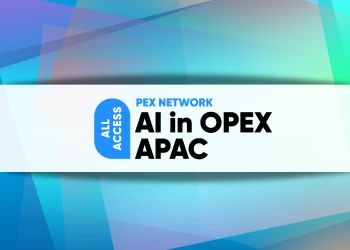Indian Firms Must Create "Sustainable Competitive Advantage"
Add bookmarkThe Process Excellence Network is launching its first Lean Six Sigma summit in India later this year. Megan James, Deputy Director Portfolio at the PEX Network, has been organizing the summit and explains why the network felt the time was right was a Lean Six Sigma event in India, shares insight into the key differences in approaches to operational excellence between India and European and North American markets, and also illuminates some suprising cultural differences.
PEX Network: Why do you think it's the "right time" now to hold an event like this in India?
Megan James: Lean and Six Sigma along with other Business Process Excellence approaches have really come to the foreground of Indian business over the last 5 years. Much of this is based on the need to create a sustainable and profitable competitive advantage within the global economy.
For instance, over the last decade many Indian outsourcing firms flourished because of low labour costs. At the time, wages and overheads were so cheap compared to other markets that the need for cost reductions and competitive service delivery was not as compelling as we see in more mature markets. It was simple - their product was cheaper and therefore more attractive.
But now we're seeing the costs of labour in India increasing along with a rise in GDP, while other global markets stagnate. As a result, many BPOs are finding the need to strip costs out of their operations to maintain their competitiveness and compete on service as well. Many outsourcing companies are now coming around to the benfits of using Lean and Six Sigma tools.
Another example is in the global supply chain environment. The simple fact is that Indian companies looking to work with or supply into some of the Fortune 500 need to prove their attention to quality and delivery. Lean Six Sigma is so often now a critical pre-requisite to become a supply partner for many power corporations that it’s no longer a simple ‘nice to have’ but a ‘need to have’ to secure these partnerships.
Of course India has for a long time employed techniques such as TPM in manufacturing but it is only more recently that the service environment has also caught onto the need to drive quality and process excellence. This is growing fast and with more and more companies based in the region seeking talent that can help them deliver to these key capabilities.
PEX Network: What are the key concerns of the process excellence leaders in India that you've been speaking with? How do they compare to the concerns of leaders in Europe and N.America?
Megan James: As the uptake of Lean Six Sigma in India is relatively new, the concerns of the Indian market are generally around how to launch and embed a Business Process Excellence or Quality approach, rather than in the US where they are looking to maximise returns, grow and move to the next level.
One particular challenge is how to move from a basic project level approach of step-change improvements to a joined up programme for complete process excellence that spans the entire organisations. Few, except the leaders such as TATA who have their own Business Excellence model, are in reality anywhere near to achieving this.
There is also a big step between the cultural understanding of Lean Six Sigma as a tool and Lean Six Sigma as a management discipline. This is causing increasing concerns as take up form the wider business is slow and to be truly effective Lean Six Sigma needs to wins the hearts and mind of every single individual.
PEX Network: How does the approach to operational excellence in India differ from what you've seen elsewhere in our other markets?
Indian led Process Excellence programmes in general seen to follow much more of a top down approach (compared to the more bottom up and pragmatic approach that has been adopted in Europe). This is a reflection of the very hierarchical organisational structure and culture that is ingrained within the traditional Indian business, with decision making for the business at the top. Their centralised and leaders driven approach to Lean Six Sigma has been adapted to reflect this whilst the US and Europe are now trending towards a more decentralised model of accountability.
The other thing to note is that current Process Excellence initiatives are very based on statistics and analytics. Whilst in the US and Europe we have seen a recent backlash against some of the more complex Six Sigma tools and a move towards the more simplistic Lean tools, in India the statistical part of the Lean Six Sigma approach is core to any project. However it’s important that they look past the individual statistics to the wider business performance and a projects impact on the wider whole to make sure that value is realised.
PEX Network: I understand that as you were pulling this event together there were communication differences in interacting with the community in India - what were the main differences?
Megan James: Yes, the Indian community is naturally incredibly networked and there is a natural inclination to share knowledge and experiences. It was great to be able to speak to so many of our local trusted community that could in turn introduce me to their wider contact base. It really made the difference in creating a programme with some really thought leading projects and inspirational leadership that were recommended by the local community.
I’ve also found that the social network in India is very mobile, whether that is through emerging social networks or through mobiles and texting. Essentially everyone is so busy that information and contact needs to be easy and accessible. Although I’m based in the UK, I was having conversations with committed Lean Six Sigma practitioners on their mobiles at 10 in the evening India time – it certainly shows a true dedication to the cause!
PEX Network: Finally, what are you looking forward to most at the event?
Megan James: Certainly I’m really looking forward to the launch of the Indian Process Excellence Awards. Having run these in the US and Europe for the last 8 years it’s really exciting to be able to offer the same programme to the local area. We even have a number of our experienced global judges coming over specially form the meeting to we can create truly global benchmarking process.
Another exciting session is the keynote from the Vice Chairman of Future Capital Holding and former board member for ICICI. He is a really passionate advocate for Quality and it’s amazing to hear from someone who has managed a business so successfully.
The whole event should be a great chance to network across local Indian owned businesses and global corporations that have significant operations in the area. I’m hoping it will be a chance to share as much knowledge as possible and strengthen the PEX Network community within India.
[eventPDF]























